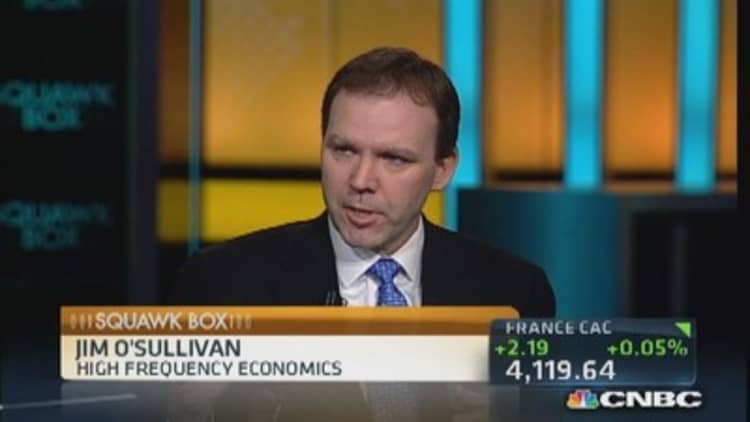Workers at the Volkswagen assembly plan in Chattanooga, Tenn., will vote next week on whether to join the United Auto Workers union.
If the majority of the nearly 2,000 hourly employees decide to become part of the UAW, unionization in the U.S. could take a major step forward, said one analyst.
"It would symbolically be a major victory for organized labor," explained Jason Bent, a professor of employment law at Stetson University College of Law.
Bent added that because the vote is in a Southern right-to-work state that has been resistant to unionization, it's a major opportunity for organizing across the region.
(Read more: Private firms create fewer jobs than expected)
But if the vote goes negative, unions will likely suffer a big setback, said James Matthews III, an employment lawyer with Fox Rothschild.
"It would be a major black eye for the UAW," explained Matthews. "You have a situation where the company agreed to an election and you still can't get a majority vote. It doesn't say much for the UAW and labor."
The secret-ballot vote in Chattanooga, scheduled for Feb. 12-14, was set by the National Labor Relations Board after Germany-based Volkswagen and the UAW reached an agreement Tuesday to let the workers have their say.
"Volkswagen Group of America and the UAW have agreed to this common path for the election," Frank Fischer, CEO of Volkswagen Chattanooga, said in a statement released Tuesday.
Fischer also said that VW is committed to neutrality in the voting and calls upon all third parties to honor that neutrality.
Making the VW plant a union stronghold would be a reversal of fortune for the UAW. Membership in the union has fallen dramatically from a high of 1.5 million in 1979 to just barely 400,000 in 2012. Nearly all those are at American car makers, with the only foreign automaker in the U.S. with union members being a Mitsubishi assembly plant in Normal, Ill.
Total union membership in the U.S. however, remained the same in 2013 as it was in 2012, according to the Bureau of Labor Statistics—after years of decline.
Tennessee is one of 24 states with "right-to-work" laws that allow nonunion workers to receive the benefits of union representation without having to pay union dues—and so making it somewhat easier to beat back union organizing efforts.
(Read more: Small auto brands steal spotlight from big guys)
UAW organizers have reportedly said they have a enough backing to pass the vote. However, business groups in the state, along with GOP Gov. Bill Haslam, Sen. Bob Corker, R-Tenn., and some VW workers at the plant, are against it.
In a highly visible public relations effort to get workers to vote no, opponents say a union would drive away business investment in the state because of the higher wages that would follow a pro-union vote.
But proponents of unions say that argument goes against common sense.
"The fact is, people will spend more if they make more and create more jobs," said Emily Rosenberg, director of the Labor Education Center at DePaul University. "It's good to have higher wages. Everyone benefits, from workers to businesses."

If the majority of workers in Chattanooga vote for UAW representation, employees would then elect a bargaining committee to negotiate with the company.
They would also then be able to set up a council made up of employees and managers that would collaborate with the company on the running of the plant on issues like safety and rules—something VW already has at its plants in Europe and elsewhere outside the U.S.
(Read more: )
VW's plant in Chattanooga opened in May of 2011 and produces some 150,000 Passat model cars a year. The UAW has been trying to unionize the plant since it opened.
With so many keeping tabs on next week's vote and its outcome, the stakes are high.
"If the UAW wins, I expect them to double their efforts in the South, and other parts of the country," said Stetson University's Bent.
But if they lose, said Fox Rothschild's Matthews, it's because workers don't feel unions make a difference in their lives.
"The UAW and other unions have to do a better job of selling themselves and letting workers see the benefits," he said. "They haven't been very good at that."
—By CNBC's Mark Koba. Follow him on Twitter @MarkKobaCNBC
.

